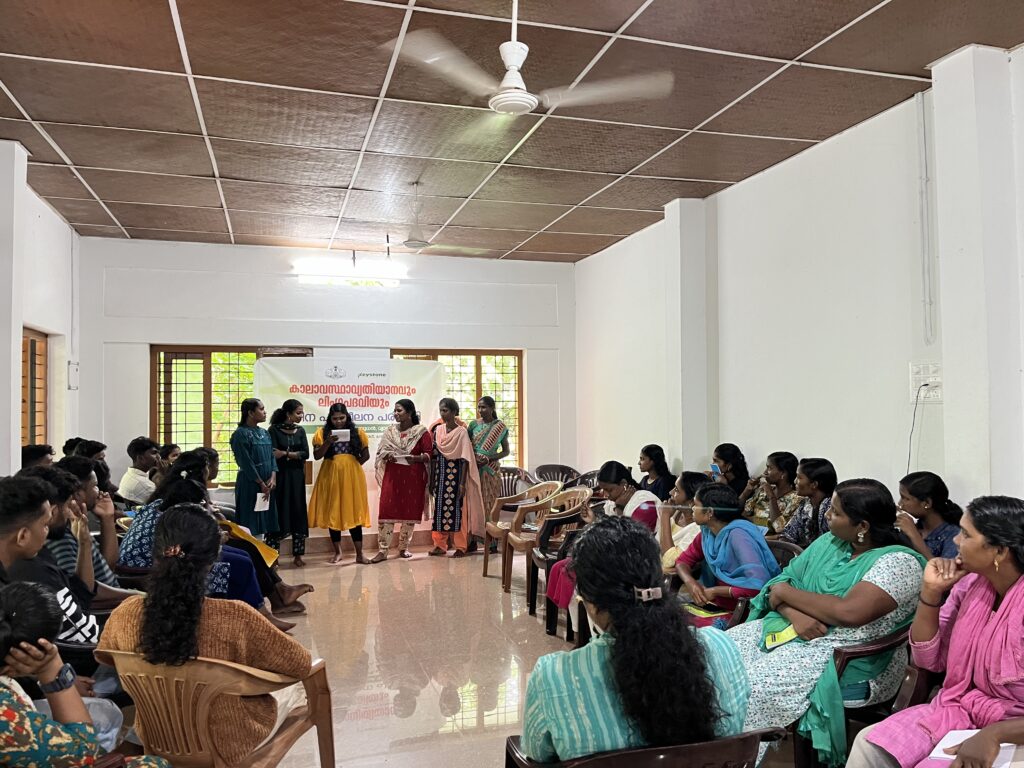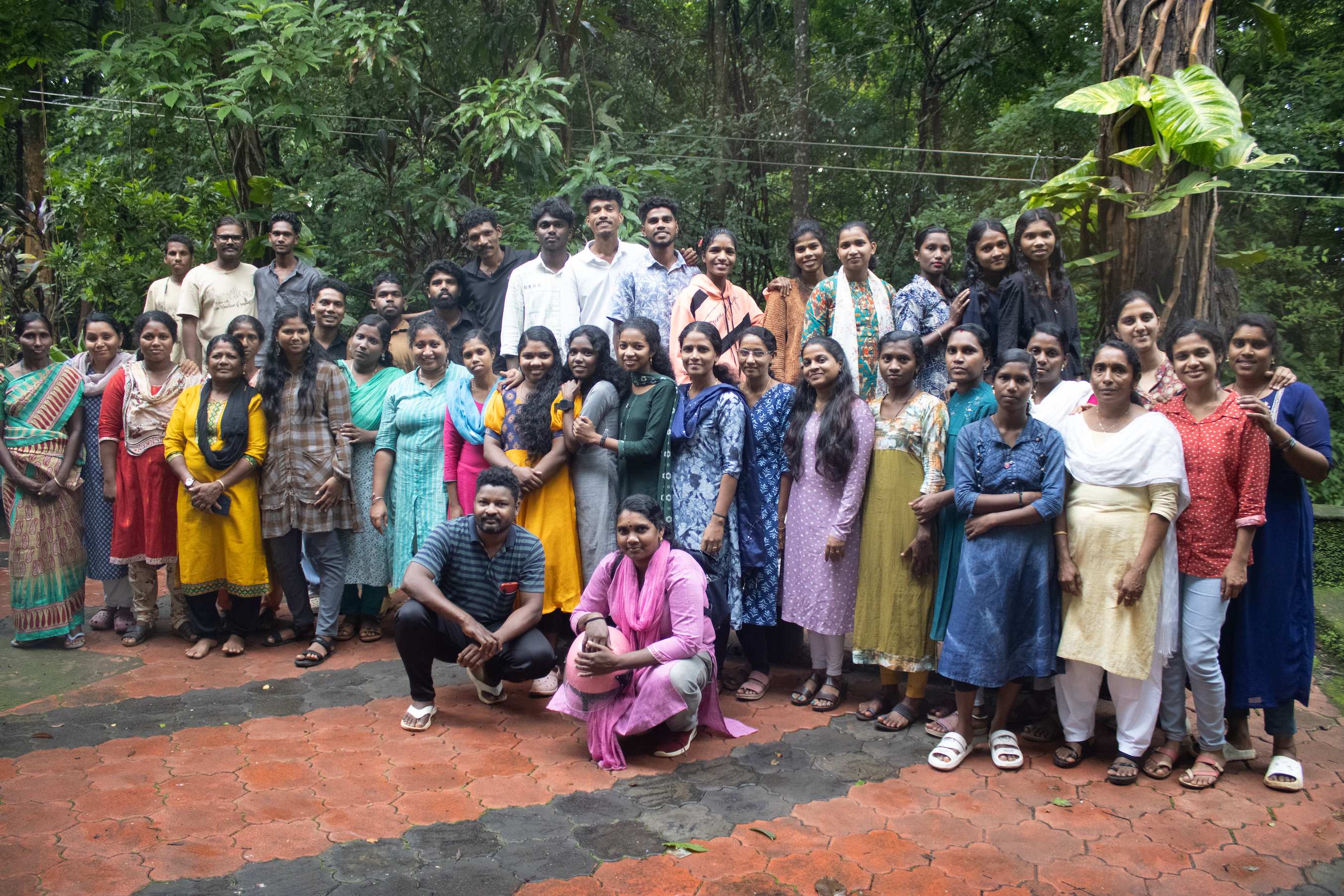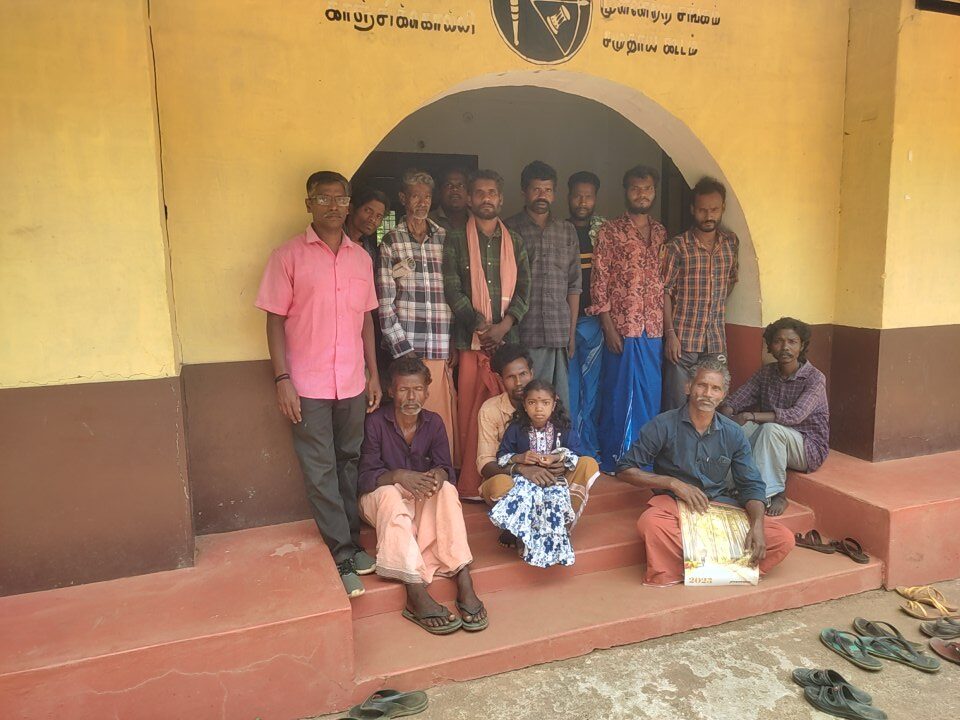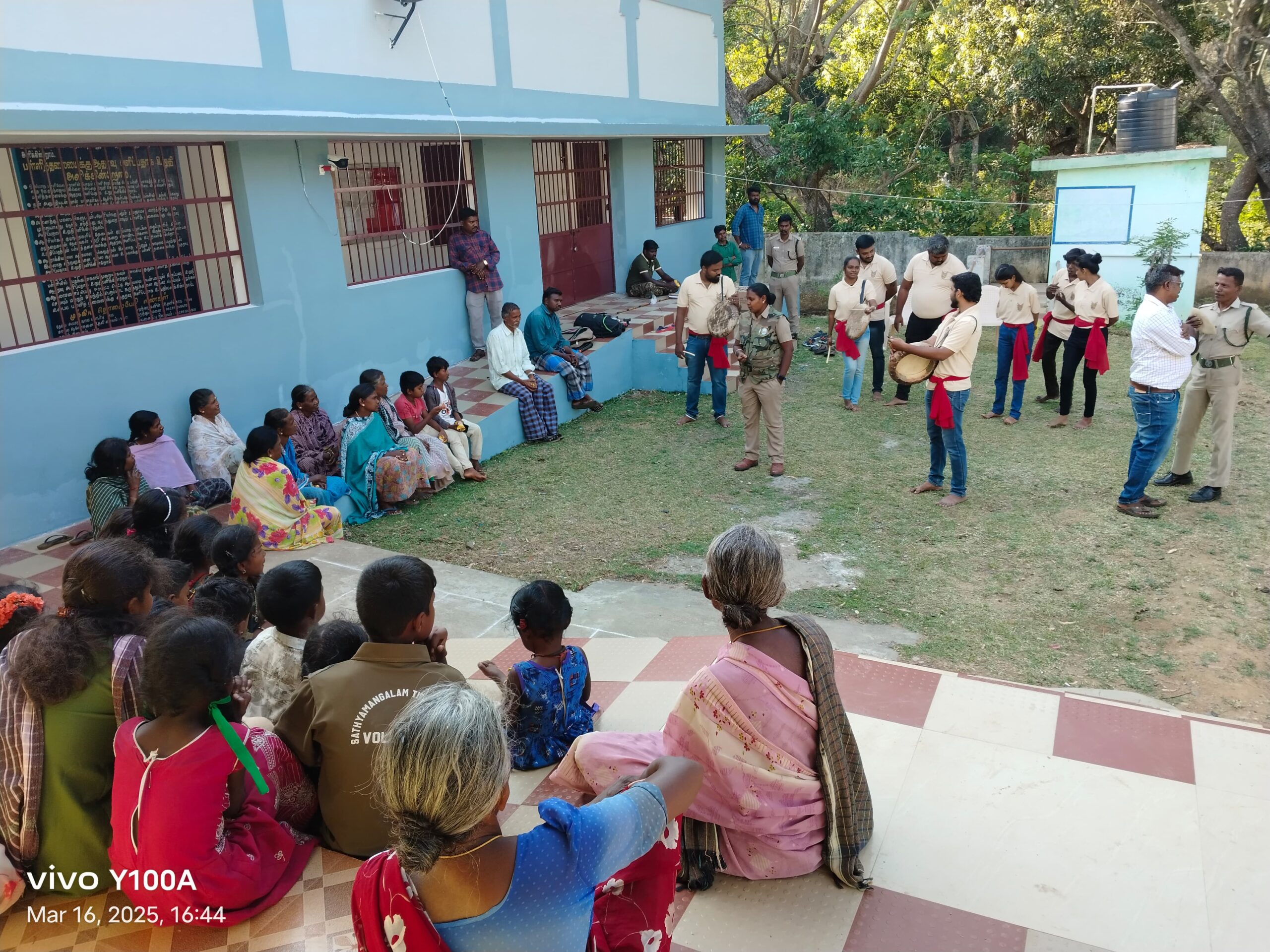By Bhavya George, Climate Solutions Programme Coordinator and Reshma, Climate Solutions Technical Coordinator, Climate Change
It is a known fact that climate change is a global phenomenon and affects everybody. However, the effects of climate change are not the same for everyone, and they are especially not gender neutral. In our context, gender plays a significant role in social, ecological, cultural and economic impacts of climate change. There is disparity between women and men in their vulnerability on how they cope with the adverse effects and impacts of climate change.
In order to understand these differential impacts, and look at the issues of climate change with a gender lens, a two-day gender and climate change workshop was held in Nilambur on 19th and 20th June at Chaliyar Eco Development site, managed by Kerala Forest Department. This was the second workshop after the first one was held in the Nilgiris at Keystone Campus on 8th and 9th November 2023.
41 participants (30 women and 11 men) from Kattunayakan, Muthuvan, Aranadan, Paniya and Kurumba communities from Nilambur, Wayanad and Attapadi attended the workshop. As community resource persons, their work focuses on livelihoods, health, community research, climate education and forest rights. Though climate change was not a new topic of discussion for anyone here, as they have lived experience of erratic weather patterns and frequent floods, the workshop focused on looking at it with a gender lens. Through this workshop we discussed how to integrate this focus into the participants’ work and daily life.
Climate Change programme team Bhavya George, Vidya S and Reshma R facilitated the workshop with support from the Nilambur field team, led by Faseela. The Nilambur Block panchayat president, Mrs. Pushpavalli, inaugurated the session and shared her views about the need for workshops on climate change integrated with a gender lens.
We initiated the workshop with a climate science theme, which included an explanation of climate change and how it is seen globally. We explained why it is called a global phenomenon along with its very localized impact, issues and causes. Participants shared their views on how they perceived climate change personally.
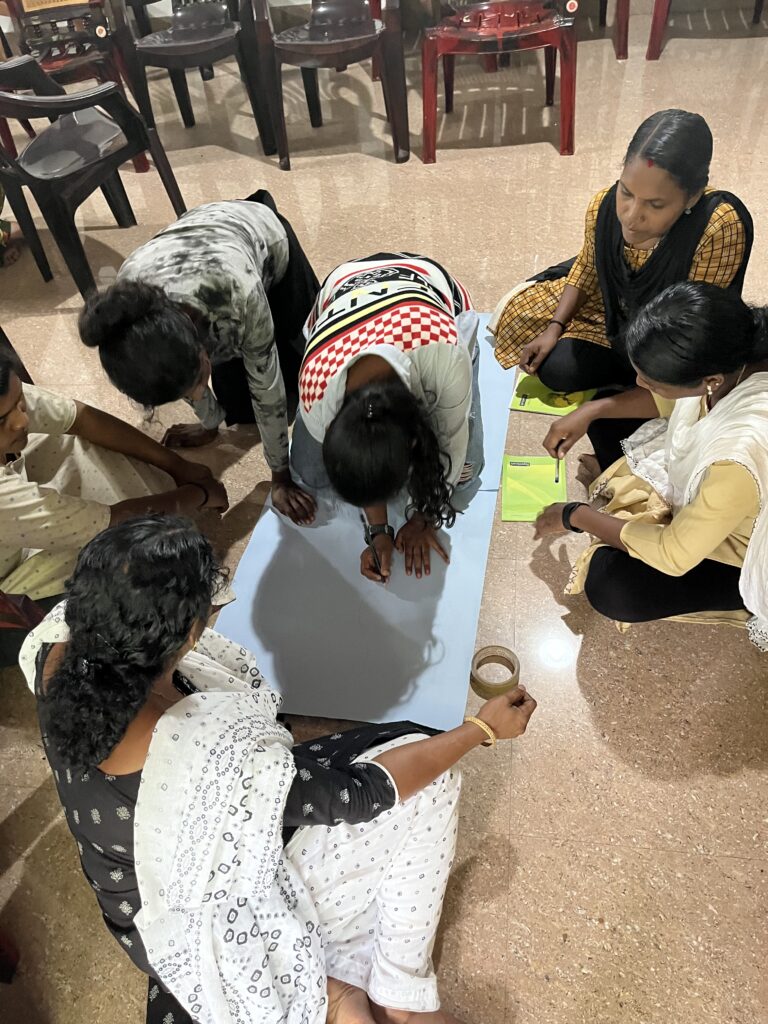
The learning mode was kept interactive with climate games, group discussions, body mapping, role play and gender walk exercises. This helped to map what issues participants are experiencing with climate change with respect to changes in river ecology, physical and mental health, farming and forest-based livelihoods, education and forest rights.
Through the exercises, we used our shared insights to tease out and integrate the gender lens in climate change and its unequal impacts. We touched upon intersectionality and equity, like how not all women and men are impacted equally, based on where they are from (rural-urban), rich-poor dichotomies, in power relations, and more.
In the gender-just climate solutions session, we discussed the usual context, where women are primarily seen as victims of climate change and not as agents of change and active contributors in climate solutions. We emphasized the need for their participation in planning, implementing and leading climate solutions.
We concluded by discussing how one can advance gender mainstreaming in climate mitigation and adaptation in their local context, which can then connect further to regional and global level. Though the topics were a bit heavy, ice breaking activities where participants from different communities could learn and link amongst one another allowed for some fun. As a basic level workshop, it was the first step in collectively building knowledge, sharing strategies and ways forward.
